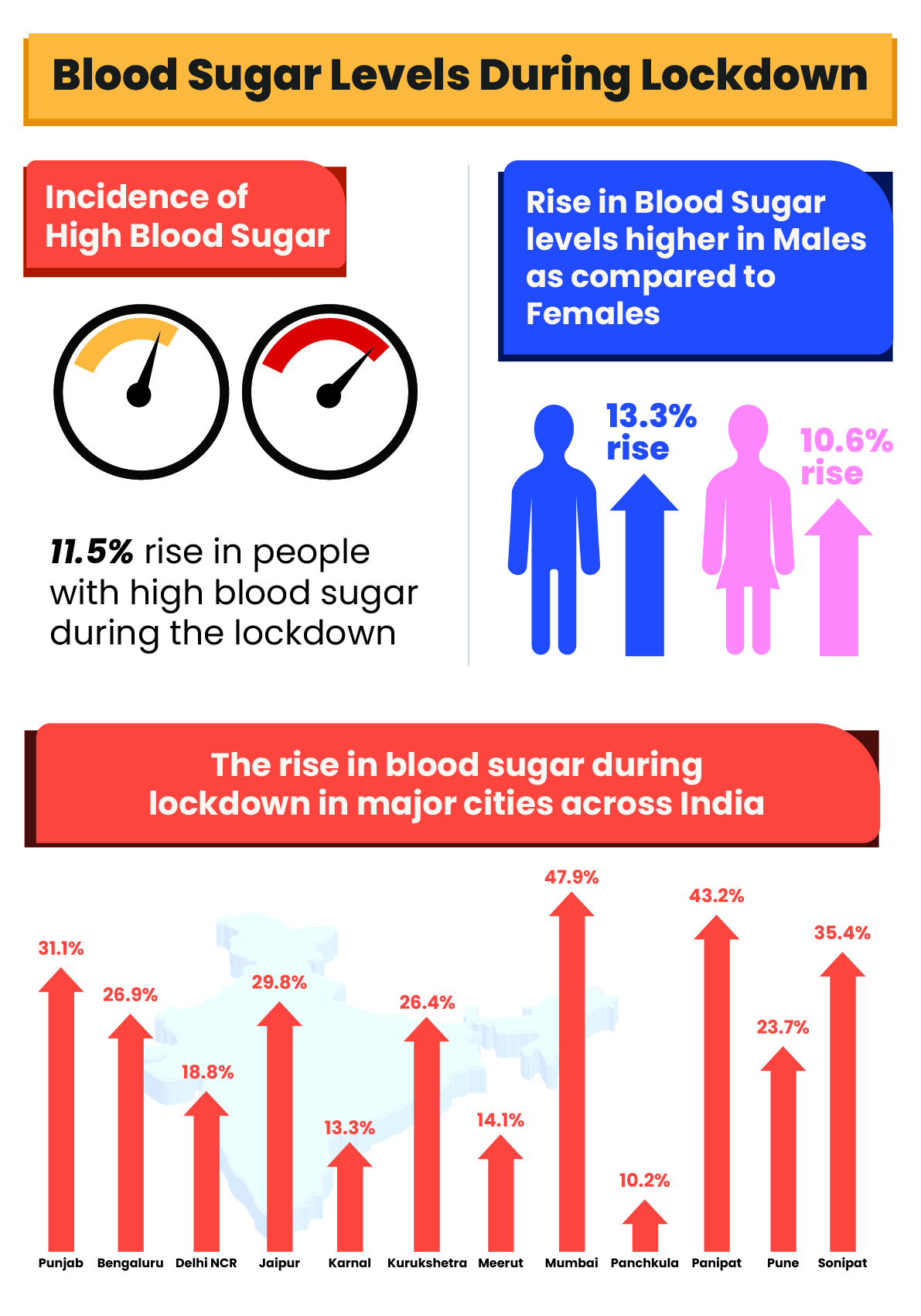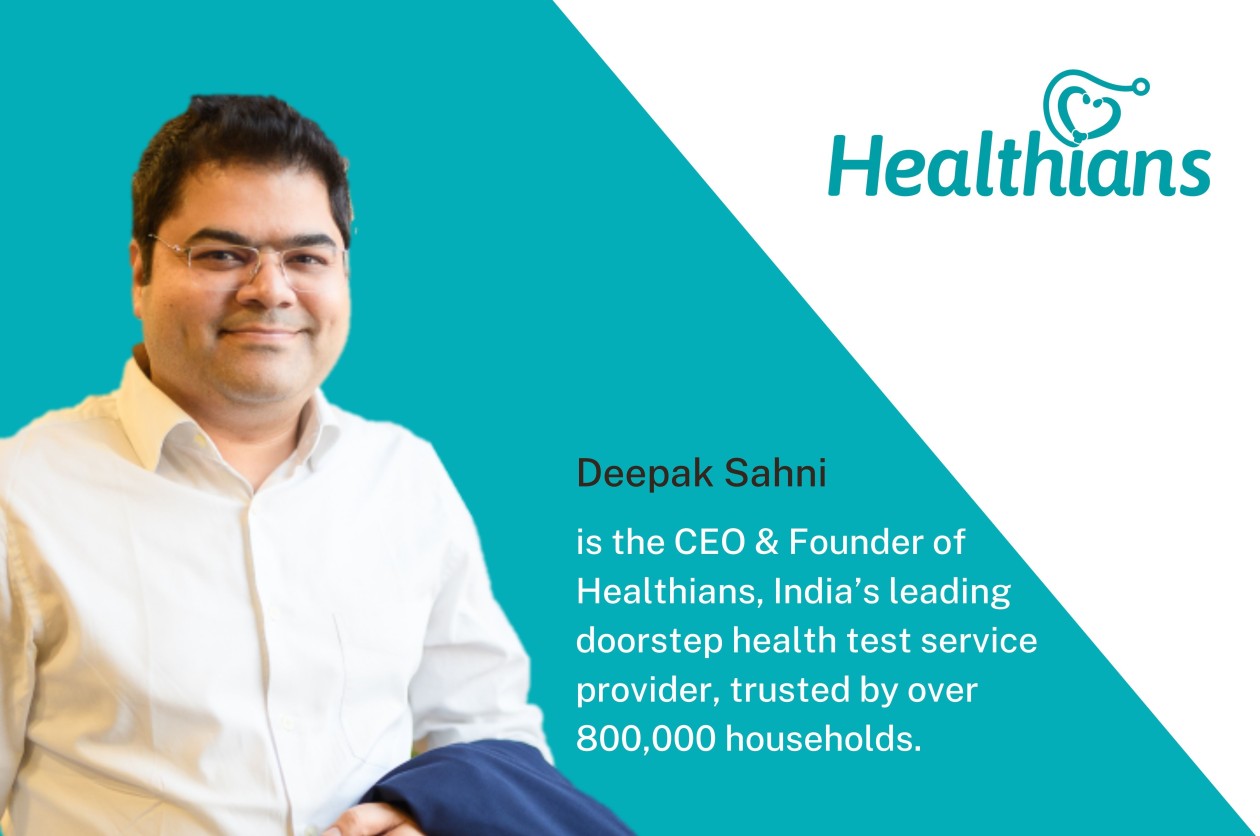By Deepak Sahni
No single factor or event has ever affected the entire country the way COVID-19 has. On one hand, it has adversely affected the health of scores of people, caused economic and financial havoc, restricted and reduced social life and on the other, it has created awareness among people about health and healthy behaviours, paved the way for better health care systems, given a push to technological advancement, helped forge better community and familial relations, put a limelight on the importance of mental health.
Current challenges – stimulus for an improved healthcare system
The COVID-19 pandemic has brought to light the gaps in the Indian healthcare system in keeping a check on the rapid spread of the infection in the country. Even though testing facilities have been ramped up the number of tests done as a percentage of the population is still modest. The pandemic has also clearly highlighted the issues that exist in our primary healthcare infrastructure in rural areas. However, due to the sudden and serious threat that the pandemic has posed, unplanned expenditure in meeting healthcare needs at a macro level has risen exponentially. The government has spent about Rs. 300 crores in sourcing equipment, beds, oxygen cylinders, ventilators etc. As per current statistics, the country has more than 15000 COVID treatment facilities with more than 13 lac dedicated isolation beds. This expenditure and restructuring of hospitals to create isolation wards and quarantine facilities will have a long term positive impact as hospitals will have the infrastructure necessary to treat a larger volume of patients, especially in cases of infectious diseases in the future.
A physical, emotional & psychological crisis
Public health is another area where COVID has had a profound effect. Isolation, stress, fears, financial troubles have all had a serious impact on mental health. Social media platforms are flooded with people talking about and admitting to dealing with mental health issues. This has created a situation where there is a conversation around mental health in the public space, which was absent previously. Physical health has also been impacted. There is a rise in health issues like obesity, back pains, neck pains, diabetes, etc. As per a study conducted by Healthians across the country, there was a rise of 11.45% in diabetic patients during the lockdown. This astounding rise could be due to limited access to healthcare facilities, unhealthy food choices, lack of physical activity, disturbed sleeping patterns, remote working conditions – where there are no set timings, lack of ergonomic working equipment, etc. 
The Silver Lining
But, there’s a flip side to it; there are some positive changes in general health and well-being. It has been observed that people have reduced or eliminated processed or outside food, many people are actively looking for ways to include physical activity while confined to their homes, there has been an increased social responsibility towards the underprivileged community, WFH or remote working has allowed people to spend more time with families and bond with them in these times of crisis. This has been corroborated by a recent study by Healthians, where it has been found that these factors have led to a significant drop in total cholesterol levels across age groups, especially among those in the high-stress age bracket of 30-50 yrs. While COVID has forced us to adopt healthy habits pertaining to hand and overall hygiene in order to stay protected from the virus, these habits, if continued, will go a long way in helping curtail the spread of other communicable illnesses as well in the future. In fact, the pandemic has triggered a mindset shift towards health and hygiene, making people more aware and conscious about pursuing healthier habits. A recent study by Google reveals that searches for healthier pursuits have gone up in the last couple of months during the lockdown. E.g. search for ‘best way to lose weight’ has emerged as one of the top searches with a 180% jump in volumes. A massive 500% increase has happened in ‘immunity’ based searches. Fitness related searches on YouTube have jumped manifold with searches for ‘full body workout at home’ going up by 90%, ‘gym at home’ by 93% and ‘Yoga meditation’ by 40%. So much so that there’s a growing self-awareness about own health vital parameters with 42% growth in searches to know ‘what’s normal’ for body stats like BP, body temperature, and blood sugar.
Healthcare – An inflection point for reinvention
At an industry level, the healthcare sector has also come under a lot of stress during these times. Most private players whether hospitals, diagnostics, pharma companies, medical equipment or services companies have all had to bear the brunt of the pandemic wherein they had to deal with reduced OPD visits and dip in elective or non-covid patients, reduced tests, supply chain issues etc. However, the silver lining to this cloud is that there has been a dramatic rise in remote consultations, telemedicine etc, which spell a great opportunity for the future. There has also been a renewed focus on diagnostic services. Private players across the healthcare industry, especially start-ups have been working hard and engaging themselves in a bid to develop innovative technology and solutions to challenges posed by COVID-19.
Healthians – building confidence through innovation
Healthians has also been working continuously in developing solutions to problems caused by the pandemic. In a bid to contribute to the Govt. in ramping up COVID testing facilities we setup sample collection via walk-in kiosks, mobile kiosks, and drive-thru centres. We launched a product called CorpShield which would allow companies to start functioning in a post-lockdown world that included health tests for employees, sanitization and awareness drives, safety audits etc. To revive primary healthcare in the country we are offering a service called MedShield, which is a complimentary service for small clinics and hospitals. Under the initiative, clinics are sanitised, the staff is trained and protocols are set up for safe patient visits. We performed an extensive survey amongst our customer base to understand their safety concerns related to going out for health tests v/s getting tested at home, based on which we launched a 3-layer COVID safe sample collection process. Which includes weekly COVID testing of all sample collectors, daily temperature and symptoms checks, and use of contactless one-time sample collection material.
Looking ahead
While a pandemic of any kind is unfortunate, there have been many behaviour changes and events that point to a future where people are developing a better attitude towards health and getting access to better healthcare services. Especially an increasing focus on building and maintaining immunity, a heightened fitness consciousness, or maintaining good health even while being confined to their homes. There is also a growing awareness among people towards preventive healthcare – which translates into working towards avoiding chronic illnesses or if they already have the condition then managing it better. The extensive use of technology and digital solutions during COVID is a harbinger of times where healthcare services can reach a larger audience easily via digital means. In fact, the launch of National Digital Health Mission is the first step towards setting up of a digital health ecosystem that could drive an elemental transformation in India’s healthcare system making it more accessible and financially efficient. The key factors where NHDM would be most impactful are transparent and seamless information sharing; accessible digital records, automated claims and payments, and high scope for continuous innovation.

